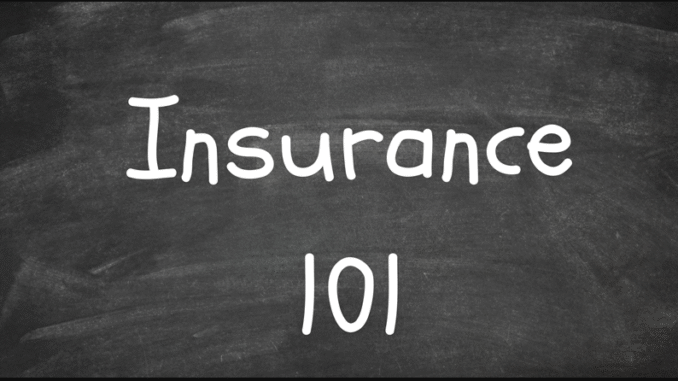
Insurance 101: What You Really Need and What You Can Skip
Insurance can feel like a confusing maze of policies, premiums, and paperwork. With so many types available—from health and life insurance to travel and pet insurance—how do you know which ones are truly essential, and which might be unnecessary for your situation?
This guide will break it down in simple terms. We’ll explore what types of insurance you really need, what you might consider skipping, and how to make smart, cost-effective decisions when protecting yourself and your assets.
Why Insurance Matters
In its simplest form, insurance is protection. It’s a safety net that helps cover unexpected costs when life doesn’t go as planned—whether that’s a car accident, a medical emergency, or damage to your home.
The right insurance:
- Protects your finances from large, unplanned expenses
- Gives you peace of mind during uncertain times
- Ensures you’re complying with laws (as some types of insurance are legally required)
But not every policy on the market is essential. Buying too much insurance can waste money—while not having the right coverage can lead to financial disaster.
Insurance You Really Need
1. Health Insurance
Health care is expensive. A single hospital stay or emergency room visit can cost thousands of dollars. Health insurance helps reduce the financial burden of medical expenses and ensures you have access to care when you need it.
Why it’s essential:
- Covers doctor visits, hospital stays, prescriptions, and emergency care
- May include preventive services at no additional cost
- Protects you from catastrophic medical bills
Even if you’re young and healthy, unexpected accidents or illnesses can happen. A health insurance plan—even a high-deductible one—is better than none at all.
2. Auto Insurance (If You Own a Car)
Most places legally require drivers to carry auto insurance. It protects you, your car, and others on the road in case of an accident.
Core coverages include:
- Liability: Covers injuries or damage you cause to others
- Collision: Covers damage to your own car in an accident
- Comprehensive: Covers theft, vandalism, and non-collision events (like hail)
Why it’s essential:
- Required by law in most regions
- Helps pay for expensive repairs or medical bills
- Protects you from lawsuits if you’re at fault
Tip: If your car is older and not worth much, you might skip comprehensive/collision and just keep liability.
3. Homeowners or Renters Insurance
If you own a home, homeowners insurance protects the building and your belongings from fire, storms, theft, and more. If you rent, renters insurance covers your personal items and liability.
Why it’s essential:
- Homeowners insurance is required by mortgage lenders
- Renters insurance is affordable (often under $20/month)
- Covers the cost to replace stolen or damaged belongings
- Offers liability protection in case someone is injured on your property
Even if you’re renting a small apartment, the cost of replacing all your clothes, electronics, and furniture after a fire or burglary can be huge—renters insurance helps you avoid that financial loss.
4. Life Insurance (If You Have Dependents)
Life insurance provides financial support to your family if you die unexpectedly. It’s especially important if others rely on your income.
Why it’s essential:
- Covers lost income, debts, and funeral expenses
- Ensures your spouse, children, or dependents are not left financially vulnerable
- Can help pay for future expenses like education
If you’re single with no dependents, you may not need life insurance—or a small policy just to cover final expenses may be sufficient.
5. Disability Insurance
Your ability to earn income is one of your most valuable assets. If you become sick or injured and can’t work, disability insurance replaces a portion of your lost income.
Why it’s essential:
- Accidents or illnesses can happen at any age
- Health insurance covers medical costs, but not lost wages
- Long-term disability is more common than people realize
Tip: Some employers offer disability insurance as a benefit. If not, consider a private policy.
Insurance You Might Skip (or Only Consider If Necessary)
While the following types of insurance might be helpful for certain individuals, they are often not essential for most people—or are not worth the cost.
1. Extended Warranties and Product Insurance
Retailers often try to upsell extended warranties on electronics, appliances, or gadgets. Most products already come with a manufacturer warranty, and repairs or replacements are rare during the extended period.
Why you can skip it:
- Low chance of needing it
- The cost often outweighs the benefit
- Credit cards may already offer purchase protection
Instead of buying these, set aside a small “tech repair” fund for emergencies.
2. Travel Insurance (in Certain Cases)
Travel insurance can be valuable—especially for international trips—but isn’t always necessary.
Skip it if:
- Your trip is short, low-cost, and non-refundable
- You already have coverage via your credit card
- You’re traveling domestically with flexible plans
Consider it if:
- You’re traveling abroad (for medical coverage)
- You’ve booked non-refundable flights or hotels
- You’re going on a cruise or adventure trip with high risks
3. Pet Insurance
Pet insurance can be helpful for unexpected vet bills, but it’s not essential for everyone.
Why it might not be worth it:
- Monthly premiums can add up quickly
- Many policies have exclusions and high deductibles
- Routine care often isn’t covered
Alternative: Set up a pet emergency savings fund to cover large bills.
4. Mortgage Life Insurance
This policy pays off your mortgage if you die, but a standard term life insurance policy usually offers better coverage at a lower cost—and gives your family more flexibility with the payout.
Why you can skip it:
- Limited use and higher cost
- Better to get regular life insurance that can cover multiple needs
5. Credit Card Insurance
Some banks offer insurance to cover your credit card payments if you become disabled or lose your job. These policies often come with high fees and limited benefits.
Better alternative: Build an emergency fund and avoid carrying large balances.
How to Choose Wisely
Here are some final tips for making smart insurance decisions:
- Understand your risks: Do you have dependents? Own a home or car? Travel often? Your lifestyle should guide your coverage.
- Compare quotes: Prices can vary greatly between insurers. Always shop around before buying.
- Read the fine print: Know what’s covered, what’s not, and any exclusions or limits.
- Review yearly: Your insurance needs can change over time—review your policies annually.
Conclusion
Insurance is about protecting what matters most—your health, your income, your family, and your assets. While some policies are essential for everyone, others can be unnecessary depending on your life stage and priorities.
To recap:
- Must-haves: Health, auto (if applicable), homeowners/renters, life (if you have dependents), disability
- Maybe-skips: Extended warranties, credit card insurance, mortgage life insurance, some forms of travel or pet insurance
By focusing on the coverage you truly need and skipping what you don’t, you can strike the perfect balance between peace of mind and financial efficiency.

